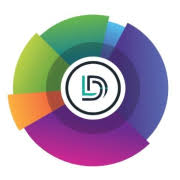Why Is Wordle So Popular?


The word game Wordle has become the new social media obsession. You have probably seen people on Facebook or Twitter posting about how many moves they needed to guess today's word. You have probably tried it yourself. But why has this extremely simple game become so damn popular?
What Is Wordle?Wordle is a surprisingly simple word guessing game. You have six guesses, and the aim is to figure out a five-letter word. After every guess, you get feedback about which of the five letters you guessed correctly. A very simple idea and a very simple, minimalistic visual display. And some of the game's popularity could be explained by this simplicity and the fact that Wordle combines two old-school games, hangman and Mastermind, in a novel manner. But there is more.
One crucial feature of Wordle is that you can do one word puzzle per day only. There is one word per day and that's it. So it is not possible to overindulge and get bored with it. And the one word per day is the same for everyone. Wordle started to take off when the results of one's guesses could be shared on social media. Given that it is the same word that everyone needs to guess on any given day, this makes it easy to compare your result with the result of your friends on social media.
This is clearly the key to the popularity of the game, but this social networking appeal is also easy to frame in an overly charitable manner. The idea would be that Wordle brings us all together and allows us to share some intellectual challenges. While this may sound flattering, this completely distorts the psychological basis of Wordle's popularity.
Psychological Basis of the Game's PopularityWordle reveals just how competitive and insecure we are. It's not about sharing intellectual experiences; it is about trying to feel superior to others.
There are two options. Either we do better than our peers—that is, we need fewer guesses. This helps us to feel that we are in the top percentile of English language users. And there is plenty of empirical evidence that this is something we care deeply about.
We all think that we are better than average at pretty much anything. Ninety-three percent of drivers think that they are better than average at driving. That is, 43 percent of us are delusional. And it is not just driving. More than 90 percent of university professors think that their teaching is better than average. I do so myself! Eighty-five percent of teenagers think that they get on well with others better than average. In fact, 25 percent of them think that they are in the top 1 percent in this respect. We systematically overrate ourselves in pretty much everything we do. And when we do well in Wordle, this serves as some sort of justification.
The other option is that we need more guesses than others. Or maybe we don't manage to guess the word at all in the allowed six attempts. This goes against our firm assumption that we are better than average at pretty much anything. What does this realisation lead to? It leads to trying it again tomorrow to prove to ourselves that yesterday's bad result was just a fluke. (What kind of word is 'knoll' anyway??)
In short, whether we do worse or better than average, both outcomes encourage us to go on playing. We are hooked for pretty bad reasons. Wordle's appeal is not that it brings us all closer together. Rather, it manipulates our deepest insecurities.


 United Kingdom
United Kingdom Argentina
Argentina  Australia
Australia  Austria
Austria  Brazil
Brazil  Canada
Canada  Germany
Germany  Ireland
Ireland  Italy
Italy  Malaysia
Malaysia  Mexico
Mexico  New Zealand
New Zealand  Poland
Poland  South Africa
South Africa  United States
United States 

























